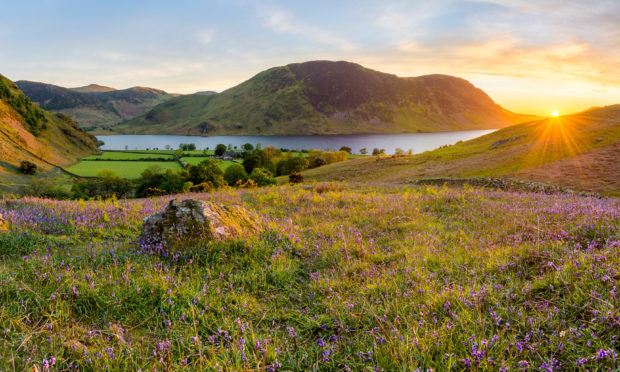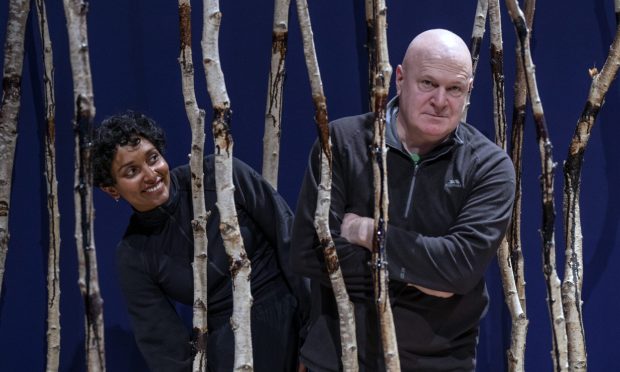So, that has got rid of the backward spring then.
“Backward spring” – I borrowed the expression from the title of a Thomas Hardy poem written 101 years ago if you please, just in case you thought that this kind of craziness had never happened before.
In my neck of the woods, recognisable spring lasted about six weeks, beginning in the second half of April. Six weeks is just not long enough for spring of all seasons, given that it cuts the nesting season, curbs migrations, impedes insect life, and makes a mockery of field guide generalities about when flowers are supposed to come into bloom, and without flowers the pollinating tribes have no pollen to gather.
I drove past a small, sloping, grassy field near Doune on the first day of June. And in that field was a flock of 75 greylag geese. They should have been in Greenland. There are increasing numbers of greylags breeding in Scotland now, but by the first of June they would be widely scattered and sitting on nests. A flock of 75 grazing in a grassy field is not normal.
I checked the field the next morning. There were five left, 70 had flown. My best guess is that they were already on the move when they saw the field and took advantage of a late opportunity to feed up before the long haul up the northern ocean, that they were late because suitable feeding for them had also been late, because winter had hung on and on and on.
Perhaps they won’t make Greenland this year. They might stop over in Orkney, say, or Iceland, cut their losses and make what they can of the summer.
But if the backward spring could help any of nature’s creatures by the laws of unintended consequences – so by accident rather than design – then perhaps it should have been a pair of mute swans that nest in a wild reed bed corner of a loch among the southmost mountains of the Highlands.
To my certain knowledge, swans have nested or attempted to nest in that reed bed every year for the last 40 years, and for 30 of those I studied them, for they broke all the rules all the time and suffered prodigious adversity because of the site’s tendency to flood spectacularly at nesting time.
They became late nesters compared to some lowland sites I know, and because spring finally turned up this year in the second half of April and May grew warmer and warmer and there was no rain, no late snows on the mountains and no flooding, it occurred to me that, perversely, this could turn out to be a particularly good spring for them.
I stopped studying the site in detail 10 years ago and reduced my presence to occasional fleeting visits, because while there seemed no limit to the adversity the swans could thole, I’d had my fill of it.
Besides, from time to time, one or other of the swans would die or vanish (missing, presumed dead) and the process would begin again with new birds, whereas I had watched it all, every year.
I checked in with the pair in late April and was pleased to see that nest building was far advanced and laying had begun. It’s a long process with swans – five weeks of incubating after the last egg is laid – and as May grew increasingly warm I grew increasingly optimistic. I checked in again at the end of May.
No swans.
I thought perhaps the eggs had hatched early and they had taken the chicks to the river or a secluded bay down the lochside or the lochan to the north. I searched for a couple of hours and found nothing. I decided to get muddy and walk out to the nest. If there were cold, discarded eggs, I would know they had abandoned the nest. If there were broken eggshells, I would know that something had hatched.
The base of a reed bed is surprisingly firm underfoot once you get out there, but the wetland character of the surroundings is predictably squelchy.
In several places, the wellies weren’t quite welly enough and I got properly muddy before I reached the nest. The result was the worst possible one.
There were no eggs at all. There had been eggs, and now there were none. Something had stolen them all.
The likeliest culprits are fox or otter. The surprise is that the swans didn’t drive them off.
So, perhaps something, or someone, had persuaded the swans to abandon the nest – yet that takes a lot of persuading, for a healthy pair of mature mute swans are formidable adversaries.
The backward spring must have accounted for many casualties in many different ways. But this, on the first day of June, was its swan song.










